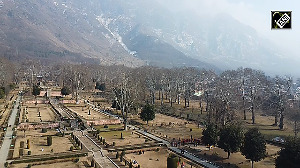 Individuals travelling abroad will now carry more currency. The Reserve Bank of India (RBI) has raised the maximum amount limit to $3,000 from $2,000. The challenge for individuals is to consider several other factors that determine the manner of usage of this amount.
Individuals travelling abroad will now carry more currency. The Reserve Bank of India (RBI) has raised the maximum amount limit to $3,000 from $2,000. The challenge for individuals is to consider several other factors that determine the manner of usage of this amount.
Travelers going for a holiday are unlikely to use the entire amount, as they would not carry such big amount. Also, many expenses are incurred in the home country itself such as ticket and hotel bookings.
Some foreign currency has to be carried, for food, tip, tourist passes and small change for telephone or other public services. The important thing for every traveller is to formulate a strategy for using this cash amount.
Here are a few points that can help:
SAFETY
The primary concern for any financial dealing during foreign travel is safety. Safety has to be maintained in terms of loss and/or theft of money or belongings.
For instance, if a family of four is travelling to Europe, it might not be safe to carry euro 2,000 in cash. They would use different ways of taking the total amount.
This can also become troublesome in case different currencies are to be used. Imagine having to maintain British pounds, euros and Swiss francs on a trip to Europe.
The individual would be better off having a small amount in currency of each of these denominations and then using a credit card for other expenses. However, there has to be equal care to ensure credit card usage is safe. Protection from identity theft and care while using the card at various places is essential.
Also, one can carry a travel card, where a specified amount is preloaded into and is used for the expenses abroad. This ensures higher safety and the trip can be enjoyed better.
FLEXIBILITY
While safety is one aspect, there is also a need to ensure adequate flexibility as different modes of payment would be accepted at different places.
For example, food joints might only accept cash. Telephone slots at public places accept only coins of a specified denomination. Hotels might accept only credit cards. This one is to ensure that having variations is necessary for the purpose of completing various transactions.
This would mean a certain amount of currency notes and coins have to be carried, especially to deal with small expenses. And, having the right amount of denomination - buses in several countries take exact change for tickets. If a person has a $10 note when the amount required is $5, he could land in trouble.
COST
There is also the cost aspect, to do with the exchange rate available for converting rupees into the foreign currency. The difference between the actual rate and the rate charged is the cost incurred. It makes sense for individuals to avoid converting small amounts. Like, some airports charge a mark-up on the prevailing rate, plus a flat charge of $1 for conversion.
If you convert just $5, then apart from the cost on the rate, the flat rate comes to a massive 20 per cent of the amount converted.
Other options have their costs, too. The credit card will have the expense of the conversion rate into rupees. So, if the prevailing rate is Rs 45 to the dollar and the bank charges Rs 45.90, then this Rs 0.90 per dollar is the expense. Some banks also levy a charge for the foreign transaction such as two per cent of the transaction value, subject to a minimum of Rs 500.
Similarly, the travel card has charges like issuance fee, reload fee, ATM cash withdrawal fee and balance enquiry fee. All these can prove costly for small amounts, though when a family is travelling, the convenience factor could outweigh the costs.
The writer is a certified financial planner.











 © 2025
© 2025